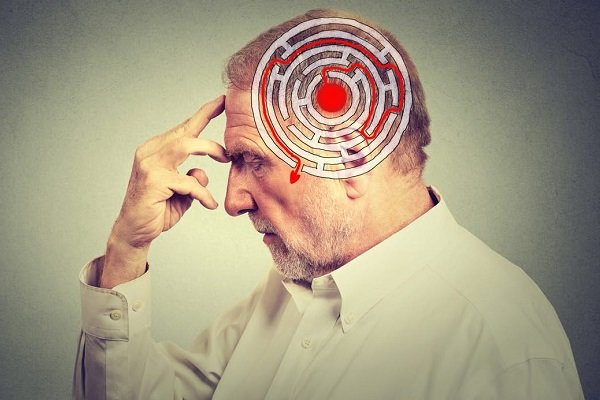Dementia is a syndrome in which there is deterioration in memory, thinking, behavior and the ability to perform everyday activities and Alzheimer's disease is the most common form of dementia and may contribute to 60–70% of cases. Worldwide, around 50 million people have dementia, and there are nearly 10 million new cases every year.
The early stage symptoms of dementia is often overlooked as the onset is gradual, however, diagnosing the disease at early stages would help the patients to receive the timely treatment to have better quality of life, IRNA news agency quoted Maryam Harifi as saying.
According to World Health Organization (WHO) forgetfulness, losing track of the time, and becoming lost in familiar places are the early stage signs of dementia.
Iran is a country with high incidence of Alzheimer’s disease and over the oat few years the number of people suffering the disease have been growing, she lamented.
In September 2017, head of the association Masoumeh Salehi said that some 700,000 have Alzheimer’s disease in Iran.
Harifi also explained that with regard to the growing aging population in Iran in near future we will face “Alzheimer’s tsunami” and unfortunately the general public is not well-informed about the disease.
As the lifestyle and diet are important factors in developing the disease the public should become aware of the disease, its risk factors and best ways to manage it, she Harifi suggested.
The Iran Alzheimer’s Association is mainly concerned with informing the public about the disease by holding training courses, screening tests and encouraging mental activities such as yoga and meditation, she explained.
She further underscored the importance of being kind to the elderly and teaching the children and teenagers to treat their grandparents who suffer from Alzheimer’s gently.
WHO facts on dementia
Dementia is not a normal part of ageing
Although dementia mainly affects older people, it is important to know that it is not a normal part of ageing. Dementia is a syndrome, usually of a chronic or progressive nature, caused by a variety of brain illnesses that affect memory, thinking, behavior and ability to perform everyday activities.
47.5 million people live with dementia
The total number of people with dementia worldwide in 2015 is estimated at 47.5 million. Among them, 58% live in low- and middle-income countries, and this proportion is projected to rise to 71% by 2050.
A new case of dementia is diagnosed every 4 seconds
One new case every 4 seconds. The number of people with dementia is expected to increase to 75.6 million in 2030 and 135.5 million in 2050.
Huge economic impact; $604 billion per year
The high cost of the disease will challenge health systems to deal with the predicted future increase of cases. The costs are estimated at $604 billion per year at present and are set to increase even more quickly than the prevalence.
Caregivers of dementia patients experience high strain
Caring for dementia patients is overwhelming for caregivers. The stresses include physical, emotional and economic pressures. Care givers require support from the health, social, financial and legal systems.
Early diagnosis improves the quality of life of people with dementia and their families
The principal goals for dementia care includes diagnosing cases early, optimizing physical health, cognition, activity and well-being, detecting and treating behavioral and psychological symptoms, and providing information and long-term support to caregivers.
People with dementia and their families are often discriminated against
People with dementia are frequently denied the basic rights and freedoms available to others. For example, physical and chemical restraints are used extensively in aged-care facilities and acute-care settings.
Awareness and advocacy are needed
Improving the awareness and understanding of dementia across all levels of society is needed to decrease discrimination and to improve the quality of life for people with dementia and their caregivers.
More research and evaluation is required
More research is needed to develop new and more effective treatments and to better understand the causes of dementia. Research that identifies the modifiable risk factors of dementia is still scarce.
Dementia is a public health priority
To address this important health priority there are actions that can be taken: promote a dementia friendly society, make dementia a public health and social care priority everywhere, improve attitudes to, and understanding of, dementia, invest in health and social systems to improve care and services for people with dementia and their caregivers, and increase research on dementia.
MNA/TT

























Your Comment